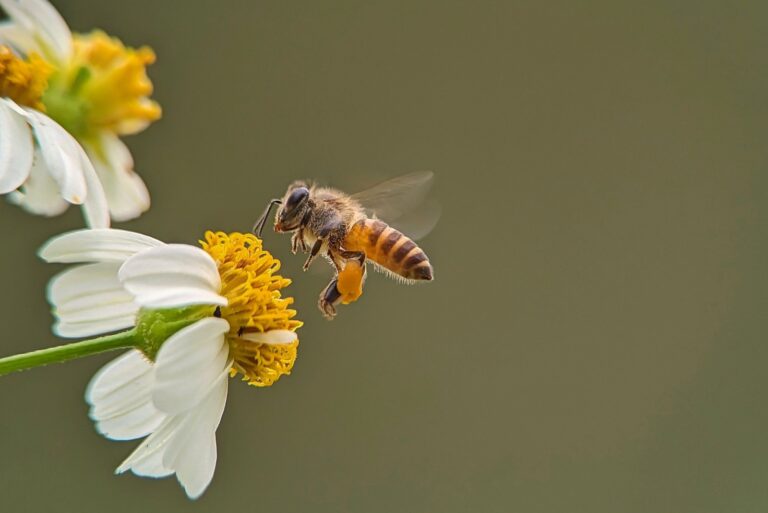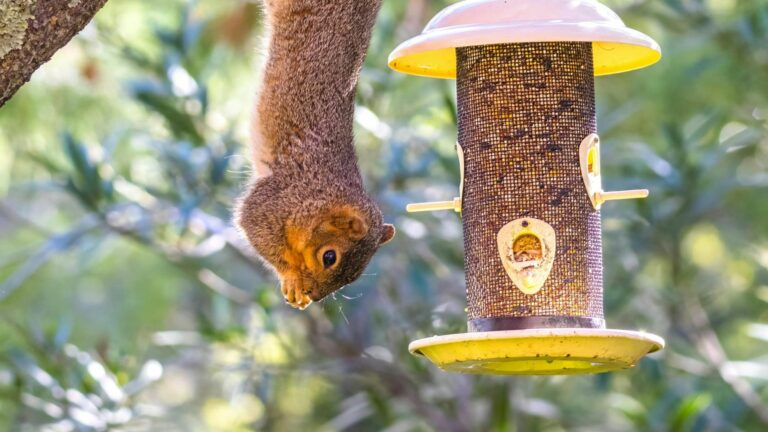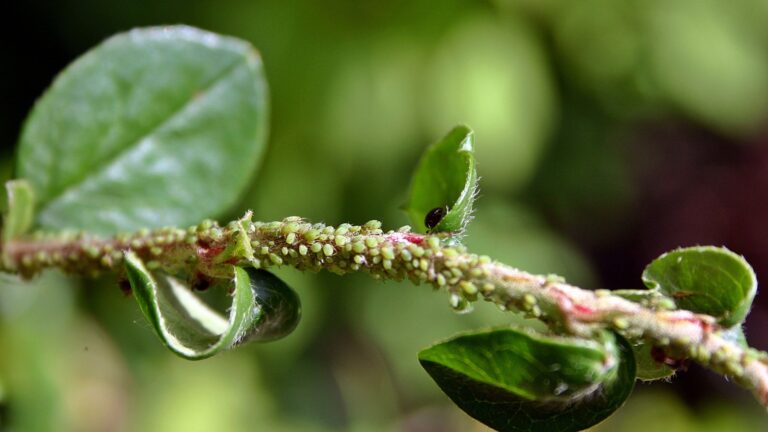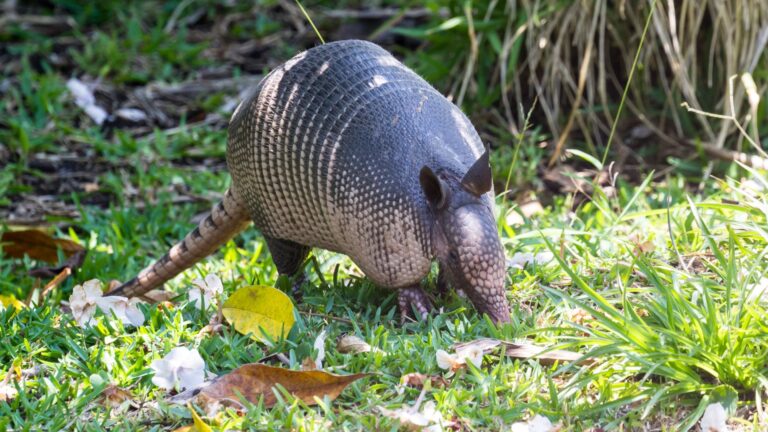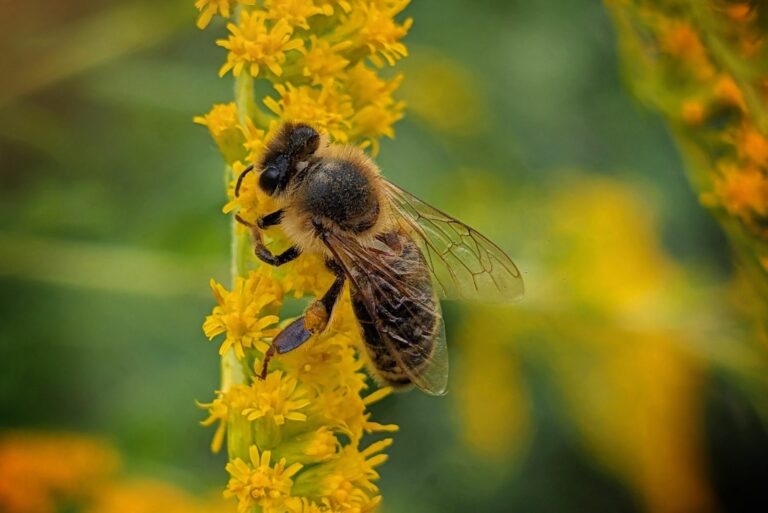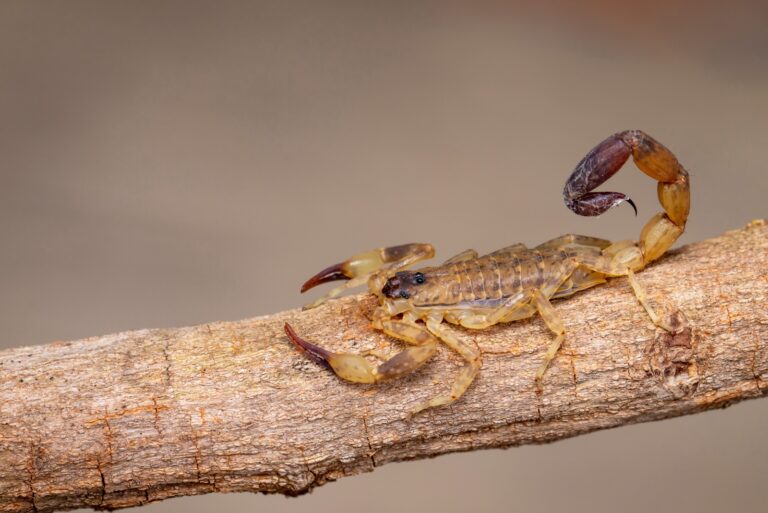10 Plants South Carolina Gardeners Use To Keep Rats Away
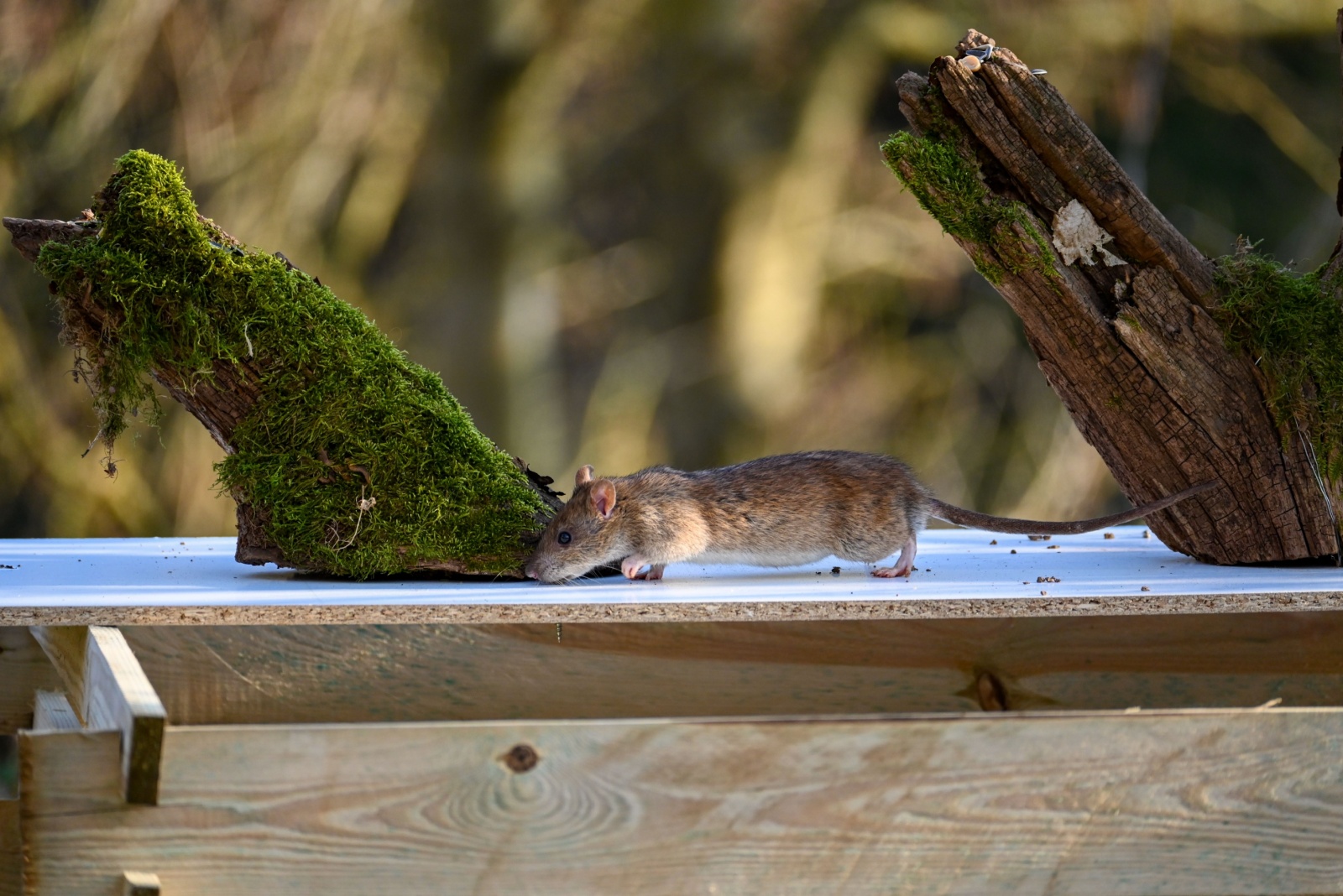
Dealing with unwanted rodents is a common headache for South Carolina gardeners, especially during our humid summers when rats seek shelter and food sources.
Instead of resorting to harsh chemicals, many local gardeners have discovered that certain plants naturally repel these pests through their strong scents or textures.
These natural solutions work particularly well in our Carolina climate and can be beautiful additions to your garden while serving a practical purpose.
1. Mint: The Refreshing Rat Deterrent
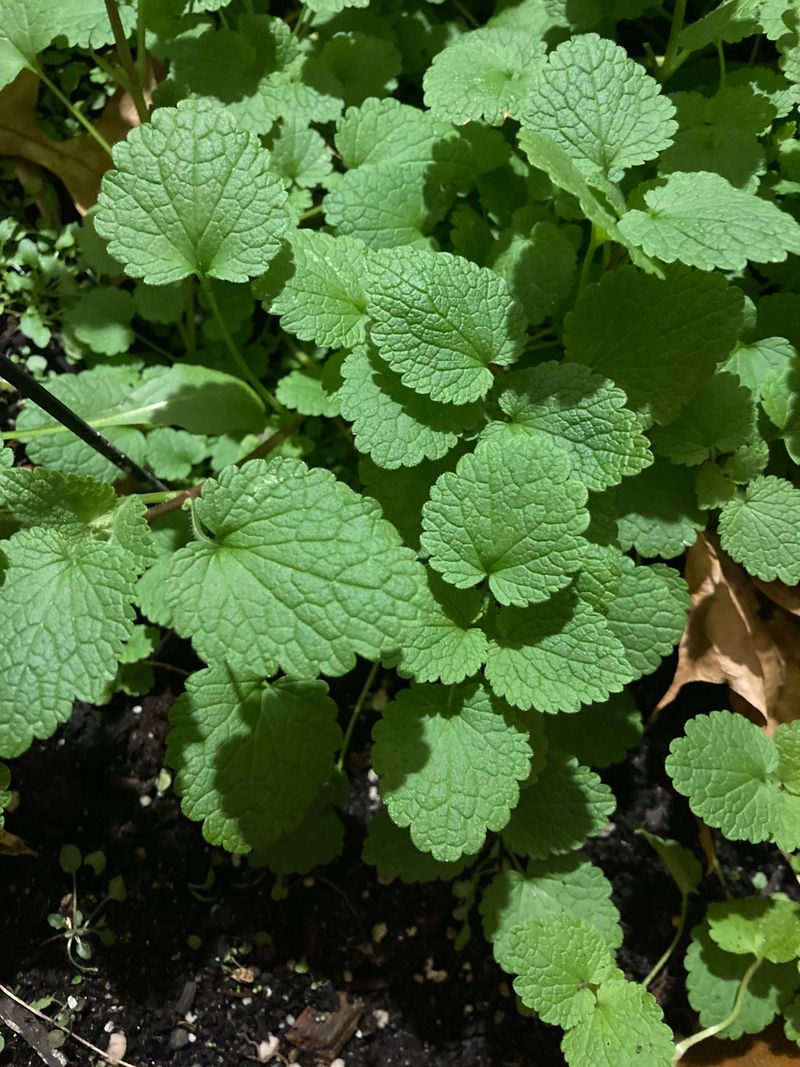
The strong aroma that makes mint perfect for mojitos also drives rats crazy – and not in a good way! I’ve planted spearmint around my garden shed in Columbia, and haven’t spotted a rodent since.
Mint thrives in South Carolina’s moist soil conditions. Just be careful where you plant it, as mint spreads aggressively through underground runners. Containing it in pots prevents it from taking over your garden while still providing effective rat protection.
For extra effectiveness, crush a few leaves occasionally to release more of the potent oils that rats avoid.
2. Lavender: Beautiful Purple Protection
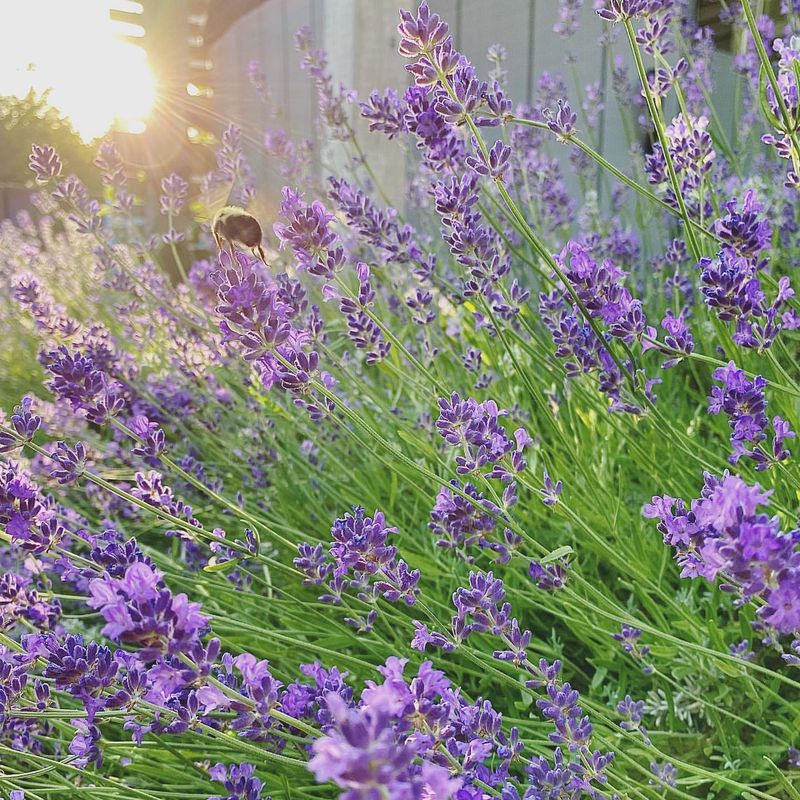
Rats can’t stand what humans find delightful – lavender’s distinctive fragrance. My Charleston neighbors and I have successfully used lavender borders around vegetable gardens to keep rodents at bay.
Despite our humidity, lavender grows surprisingly well in South Carolina when planted in well-draining soil with plenty of sunshine. The French and English varieties adapt best to our climate if given proper care.
Bonus: lavender attracts beneficial pollinators while repelling rats, making it a multi-purpose addition to any garden space.
3. Rosemary: Aromatic Rat Barrier
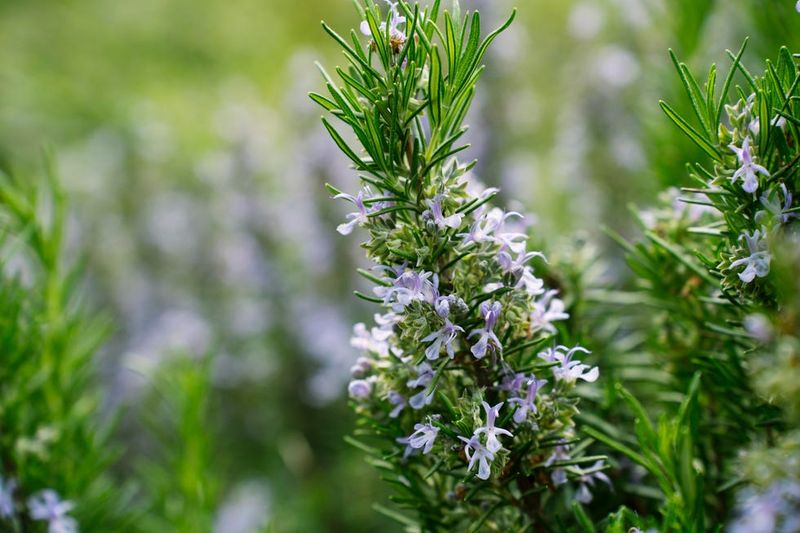
Standing sentinel near my Greenville patio, rosemary has proven itself as both a culinary herb and effective rat deterrent. Its pine-like scent overwhelms rodents’ sensitive noses, keeping them far away.
Hardy rosemary thrives in South Carolina’s hot summers and mild winters. Plant it in sandy, well-draining soil where it receives at least six hours of direct sunlight daily. Many gardeners create natural barriers with rosemary bushes around foundations.
Regular trimming intensifies its scent and keeps plants bushy rather than woody – maximizing both its repellent qualities and your cooking supply.
4. Sage: Ancient Wisdom Against Rodents
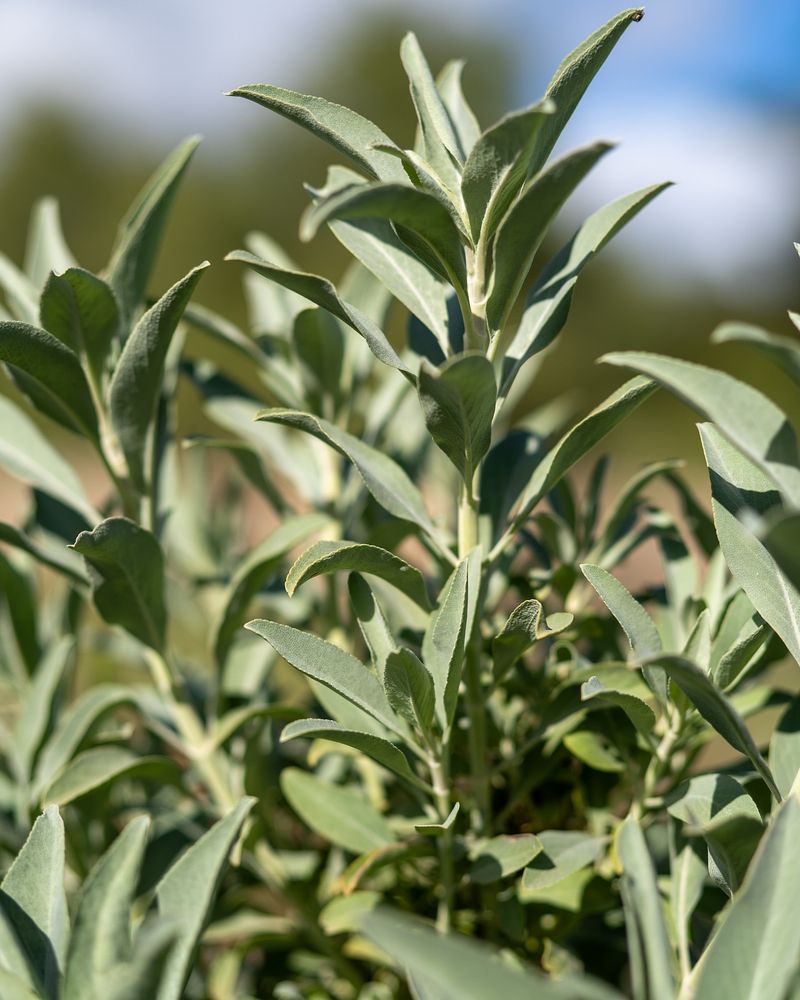
Gardening friends in Spartanburg swear by sage’s effectiveness against rodents. The earthy, slightly peppery scent that enhances our Thanksgiving stuffing creates an invisible barrier rats won’t cross.
Common sage adapts beautifully to South Carolina’s clay soils when amended with organic matter. Planting it strategically near entry points – garage doors, garden sheds, or crawl spaces – maximizes its protective powers.
During our hot summers, sage becomes more aromatic, increasing its rat-repelling properties exactly when we need them most.
5. Catnip: Feline Friend, Rat Foe
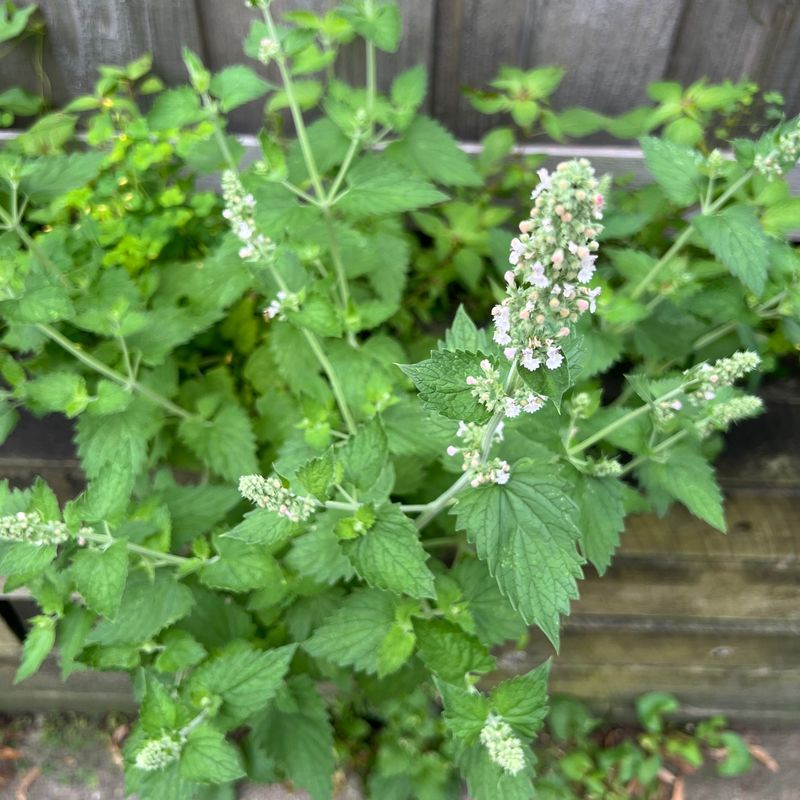
While cats go crazy for catnip, rats run in the opposite direction! Growing catnip around my Myrtle Beach garden shed created a double defense – repelling rats while attracting neighborhood cats who further deter rodents.
Catnip grows like a weed in South Carolina’s climate. The plant contains nepetalactone, which affects rats’ nervous systems, making areas with catnip uncomfortable and disorienting for them.
Harvest leaves periodically to encourage bushier growth and stronger scent. Dried catnip can also be scattered in problem areas for quick rat deterrence.
6. Garlic: Pungent Protection For Gardens
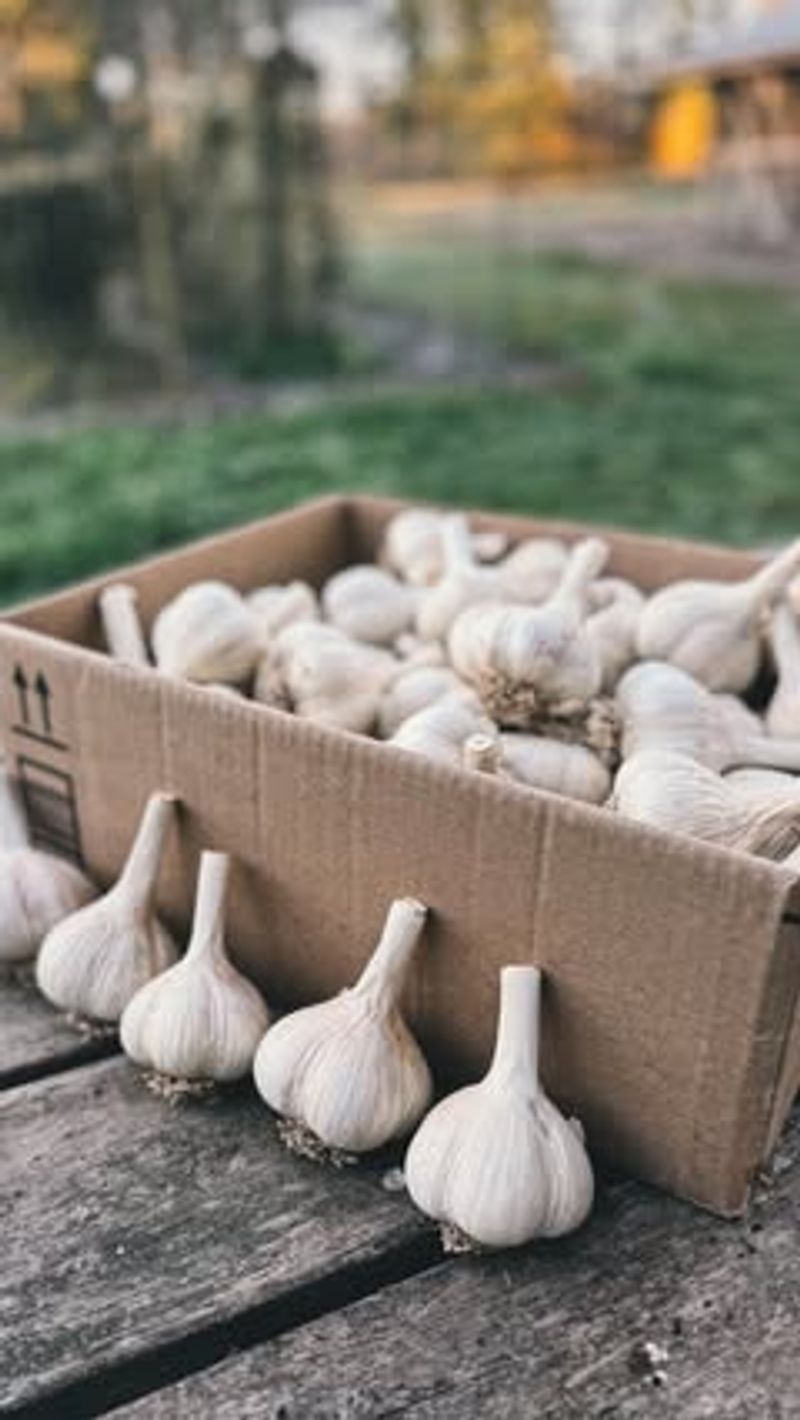
Nothing says “rats not welcome” like the powerful aroma of garlic. My garden in Beaufort has remained rodent-free since adding garlic borders between vegetable rows.
Fall planting works best in South Carolina, allowing bulbs to develop during our mild winters. The sulfur compounds that give garlic its distinctive smell interfere with rats’ highly sensitive olfactory systems, creating an environment they avoid.
Consider planting garlic around the perimeter of garden beds or near compost piles – areas that might otherwise attract hungry rodents.
7. Lemon Balm: Citrus-Scented Security
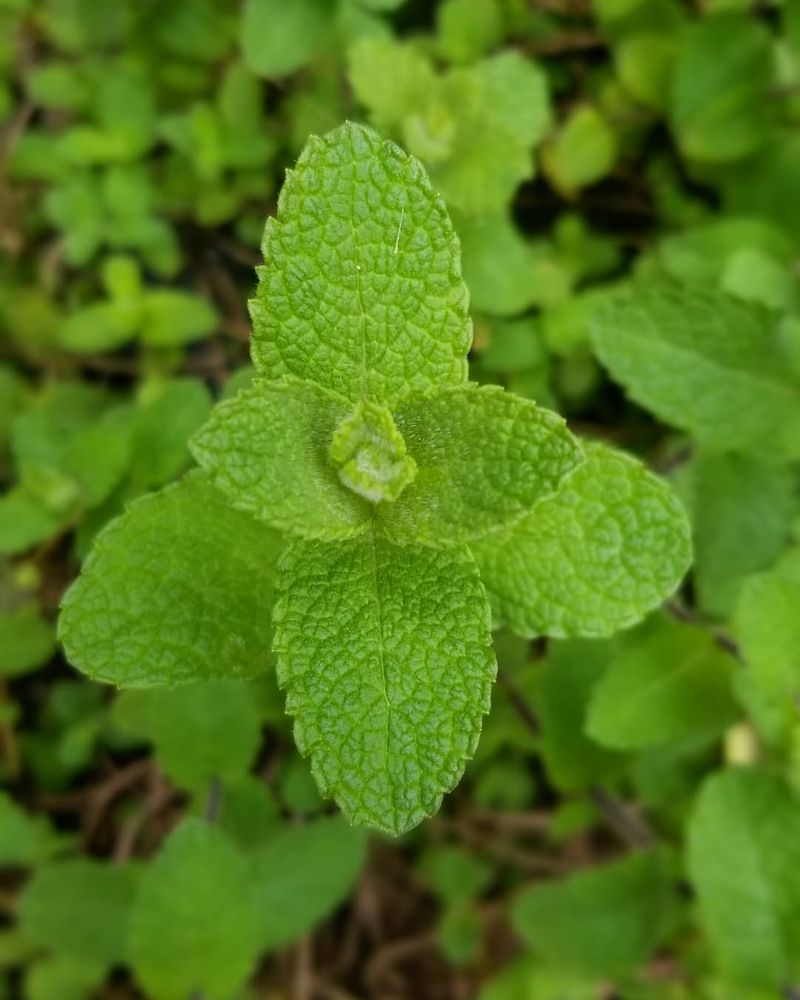
Lemon balm’s bright citrus scent brings a pleasant freshness to gardens that humans enjoy but rats absolutely despise. I’ve tucked clusters near my Hilton Head home’s foundation with excellent results.
This hardy member of the mint family flourishes in South Carolina’s climate with minimal care. Unlike some mint varieties, lemon balm is less aggressive, though still vigorous enough to create effective rat barriers quickly.
Regular harvesting prevents it from becoming leggy while providing fresh leaves for tea – a nice bonus alongside its pest control benefits.
8. Daffodils: Beautiful Bulbs That Repel
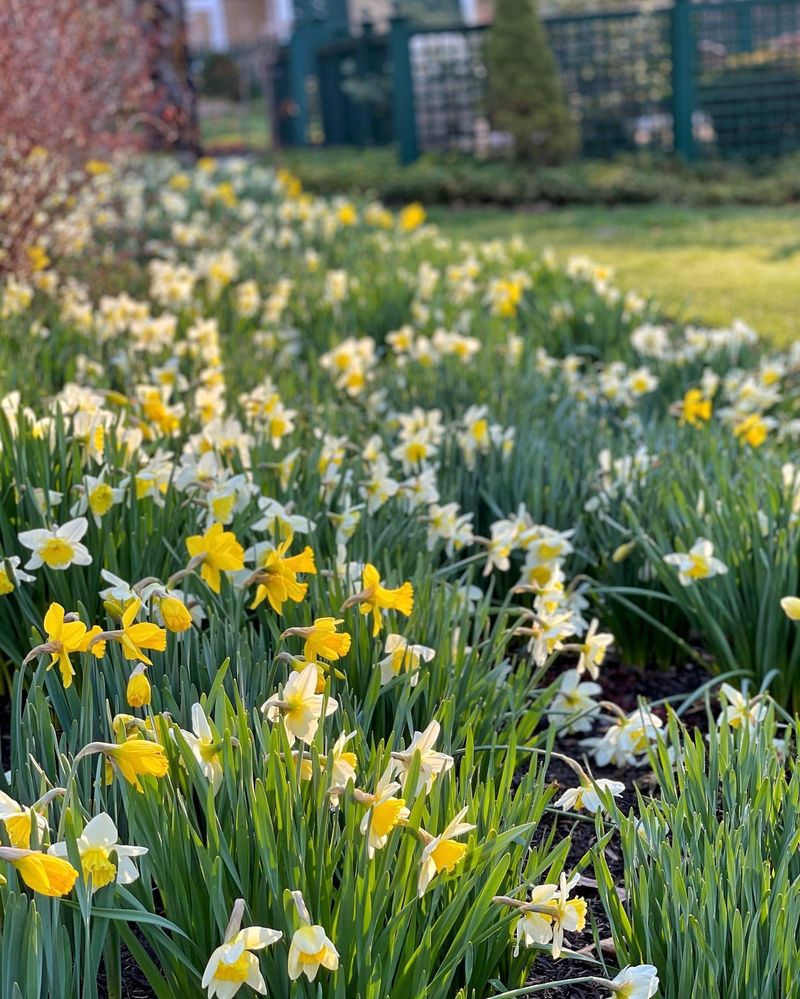
Few people realize these springtime favorites serve as natural rat repellents. Daffodil bulbs contain lycorine, a toxic alkaloid that rats instinctively avoid. After planting them around my Columbia yard’s perimeter, rodent sightings dropped dramatically.
Daffodils thrive in South Carolina, returning reliably each year with minimal care. Plant bulbs in fall for early spring blooms, creating both beauty and protection when positioned near potential entry points.
Unlike some repellent plants that need constant maintenance, daffodils provide passive protection year-round, even when not in bloom.
9. Onions: Underground Defenders
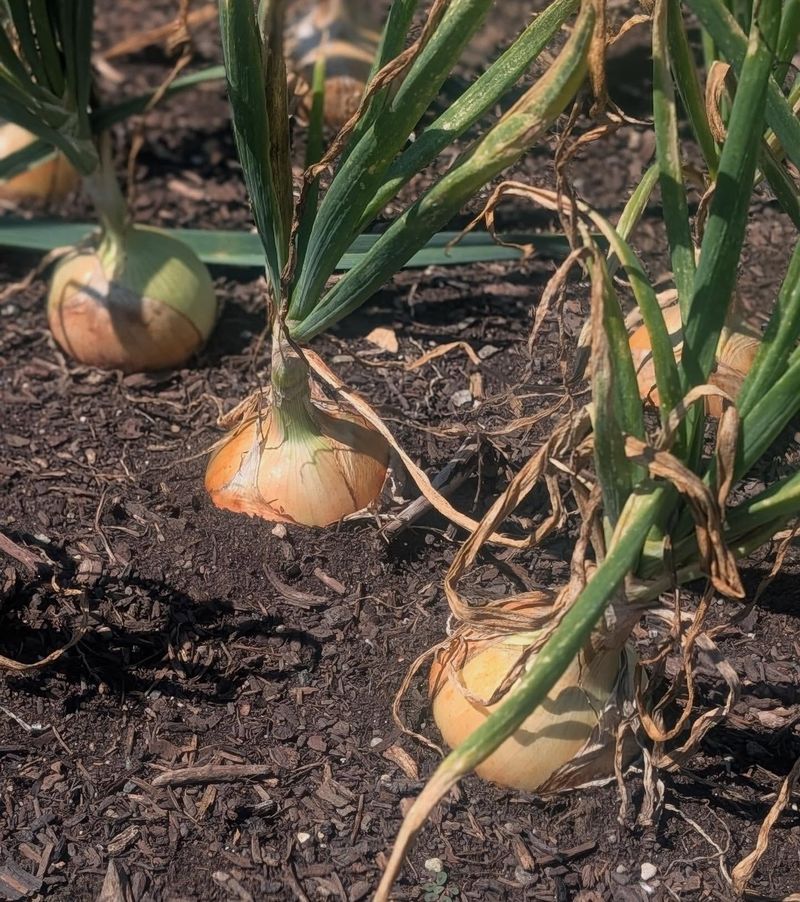
The same compounds that make us cry when chopping onions create an invisible barrier against rodents. Interspersing onions throughout my Charleston vegetable garden has protected more vulnerable crops from rat damage.
South Carolina’s growing season allows for both spring and fall onion planting. The strong sulfur smell penetrates the soil, deterring burrowing rats and making above-ground areas less appealing.
Green onions work just as effectively as bulb varieties and can be harvested continuously, providing both pest protection and kitchen ingredients simultaneously.
10. Marigolds: Colorful Rat Guards
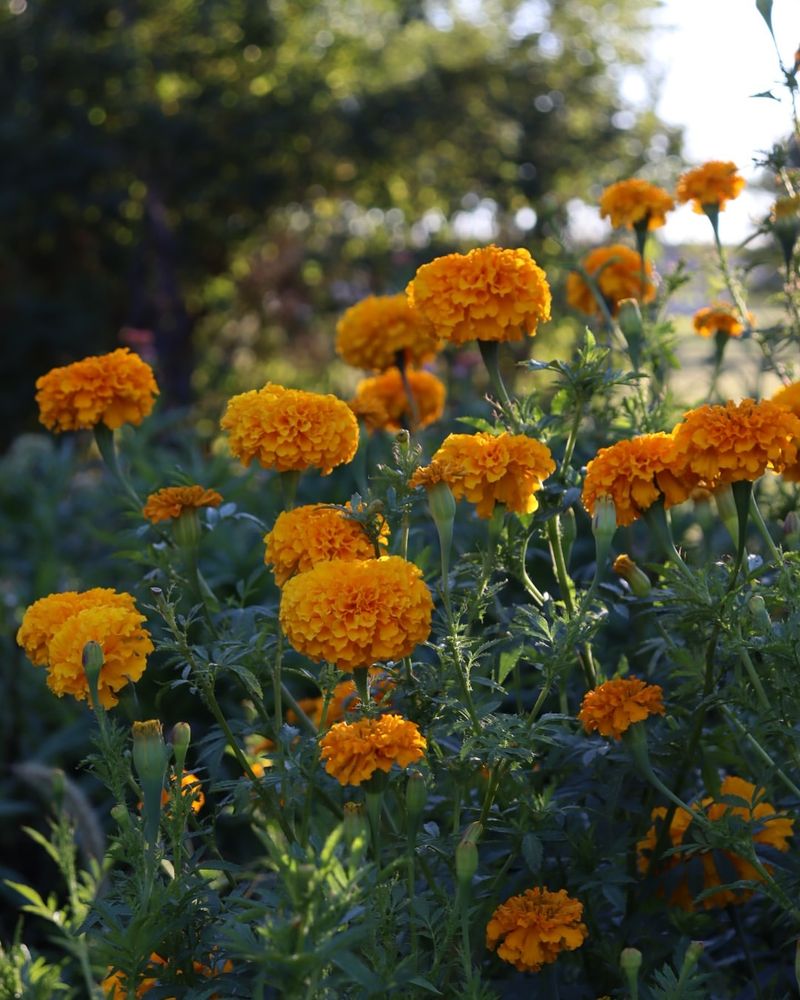
These bright flowers aren’t just pretty faces – their distinctive scent naturally deters rats and other garden pests. Surrounding my Greenville garden beds with marigold borders has significantly reduced rodent issues.
French marigolds perform particularly well in South Carolina’s heat and humidity. Their roots release compounds that repel not only rats but also nematodes, making them valuable companion plants for vegetable gardens.
For maximum effectiveness, plant marigolds densely where rat activity has been noticed. Their cheery blooms will brighten your garden while silently standing guard.

